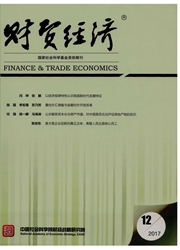

 中文摘要:
中文摘要:
企业避税问题近年来成为学术界和实务界共同关注的议题,但管理层特质因素如何影响避税行为却鲜有文献进行深入探讨。本文以2008—2013年A股上市公司为样本,研究了管理层能力与权力特征对企业避税策略的作用机制及其经济后果。实证发现,激进避税行为会损害企业价值,管理层能力和权力分别对激进避税产生了抑制和促进作用;进一步分析表明,管理层能力能够缓和激进避税行为对企业价值的负面影响,而管理层权力的增强则发挥了消极的调节效应,揭示管理层的能力与权力特征在企业避税行为中可能展现出相对迥异的“光明面”与“黑暗面”。本文研究结论为上市公司以提升高管履职能力、优化权力配置为导向的公司治理改革提供了重要的经验启示。
 英文摘要:
英文摘要:
Corporate tax avoidance has been a common concern of academics and practitioners in recent years, but there are few literatures focusing on how management factors influence tax avoidance. Thus based on the samples of A-share listed companies from 2008 to 2013, the roles of managerial ability and power in the corporate tax avoidance policy, as well as the economic consequences, are explored in this paper. The empirical study shows that corporate value would be undermined by aggressive tax avoidance behaviors. Additionally, managerial ability and power respectively inhibit and promote aggressive tax avoidance; further analyses demonstrate that the managerial ability can mitigate the negative impact of aggressive tax avoidance upon corporate value, while the regulation effect of managerial power is far less positive comparatively, revealing a contrasting "bright side" and "dark side" of managerial ability and power in the course of corporate tax avoidance. The study may provide valuable experience and implications to those listed companies which aim to carry on the corporate governance reform by optimizing internal power allocation and enhancing the executives' professional ability.
 同期刊论文项目
同期刊论文项目
 同项目期刊论文
同项目期刊论文
 期刊信息
期刊信息
